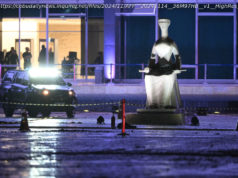How, following the collapse of the Soviet Union, did Russia and the West fail to converge in some meaningful way?
We should have brought them in from the cold, not turned up the heat Written by: The books written about the tragedy of the Russo-Ukrainian War will be legion. In the meantime, there’s another book that ought to have been written 20 years ago about a previous tragedy concerning Russia: how, following the collapse of the Soviet Union in 1991 and with it the demise of the communist regime, Russia and the West failed to “converge” in some way. Why did the two did not come to embrace each other politically, economically, and culturally? The rivalry between East and West has since 1917 been fundamentally an ideological and not a nationalist one. Historically,… The books written about the tragedy of the Russo-Ukrainian War will be legion. In the meantime, there’s another book that ought to have been written 20 years ago about a previous tragedy concerning Russia: how, following the collapse of the Soviet Union in 1991 and with it the demise of the communist regime, Russia and the West failed to “converge” in some way. Why did the two did not come to embrace each other politically, economically, and culturally? The rivalry between East and West has since 1917 been fundamentally an ideological and not a nationalist one. Historically, before the Bolshevik Revolution, Washington had been on cordial terms with Moscow, from which it had purchased the Russian territory of Alaska in 1867. Similarly, members of the British monarchy had intermarried with Russian royalty. And Russia had been an ally of the Entente against the Central Powers before Lenin and the Bolsheviks took her out of it. In 1905, it was President Theodore Roosevelt who brokered a treaty between Moscow and Tokyo following the Russo-Japanese War. Yet a dozen years later, after Lenin seized control of the country, the newly created Union of Soviet Socialist Republics and the United States and Western Europe instantly became mortal enemies. They remained so for 74 years. When I was growing up in Manhattan in the 1960s, my family and I knew many White Russians, at school and socially.






